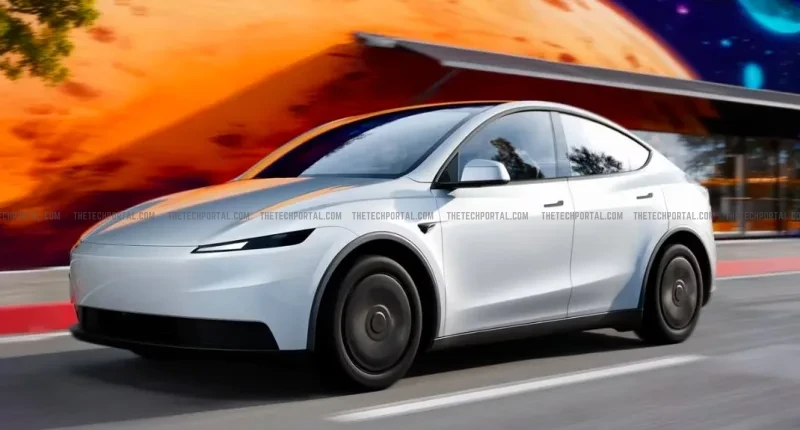With the US ending tax benefits for electric cars, Tesla has launched more affordable versions of two of its most popular electric vehicles, the Model Y and Model 3, introducing the new ‘Standard’ models. In the United States, the Model Y Standard starts at $39,990 (~ 10% less expensive than the prior base model), while the Model 3 Standard begins at $36,990. In certain states with additional incentives (like New York), buyers may see even lower prices, with the Model 3 Standard potentially dropping to $34,990 and the Model Y Standard to $37,990. These models come after the federal $7,500 EV tax credit expired.
Despite the lower price tags, the company claims that the new Model 3 and Model Y retain strong performance and an impressive driving range. The Model 3 Standard is powered by a 286-horsepower rear-wheel-drive motor and offers an estimated range of 321 miles on a single charge when equipped with 18-inch wheels. Meanwhile, the Model Y Standard comes with a slightly stronger 300-horsepower rear-wheel-drive motor and matches the same 321-mile estimated range. Both vehicles use a 69.5 kWh battery pack and can charge at a maximum rate of 225 kW using Tesla’s Supercharger network.
However, to reach these lower prices, the Elon Musk-led EV giant has made several design and feature adjustments. For example, the Model Y Standard features a redesigned front look, smaller 18-inch wheels, and a simplified interior with cloth seats and manual seat adjustments. It also replaces the panoramic glass roof found in higher-priced models with a more standard closed roof. From a production point of view, the new Model Y is about 20% cheaper to make than the previous version, with the company expected to produce around 250,000 units annually in the US by 2026. Also, the Model 3 Standard has undergone similar changes, with some updates to the interior and exterior to keep costs down while maintaining the car’s core performance and range.
The timing of this launch is closely linked to the recent expiration of the federal EV tax credit at the end of September 2025. The change has already affected Tesla customers, with lease prices increasing by up to $120 per month for older models. Actually, the monthly lease for the Model Y increased to $529–$599, while Model 3 lease rates grew to $429–$759 to offset the loss of federal subsidies.
This latest effort becomes even more critical for the company, as it is facing a challenging year. Its stock has fallen about 25% since early 2025, with Q1 profits dropping 71% to $19.3 billion in revenue, and Q2 deliveries falling 13% to 384,122 vehicles. The company, which recently revealed a potential $1 trillion payout for Elon Musk, is continuing to face significant legal scrutiny. Tesla was recently sued by the family of a teenager killed in a crash involving the Cybertruck door design. Last month, the US National Highway Traffic Safety Administration (NHTSA) also launched a preliminary investigation into 174,000 Tesla Model Y cars from 2021 due to reported issues with their electronic door handles.
The Tech Portal is published by Blue Box Media Private Limited. Our investors have no influence over our reporting. Read our full Ownership and Funding Disclosure →






